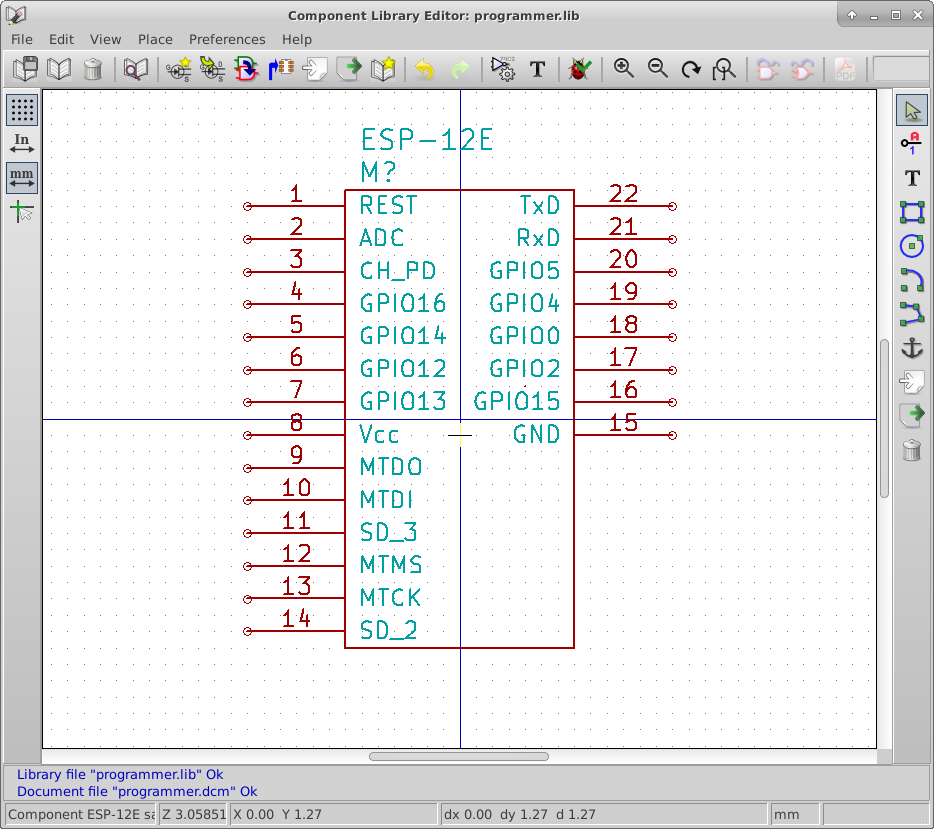A custom library is helpful for organizing your project files. In this case where I want to share my design with my readers, the new/unique parts and footprints will be created in a new library called Programmer.
I created a new project called “Programmer” and saved it in a new folder called Uprogrammer in my home directory. I ran the eeschema from the KiCad dashboard. I then ran the library editor, selected a library. Then I created and exported a component and saved it to programmer.lib in the project directory.
I added this library to the KiCad library list, and then opened it to edit. I added the pins and made it look the way I want it in the schematic.
In looking for the pinout, I found out that there is a newer model of the ESP-12. It is the ESP12E It has 6 more pins that may be beneficial to the project. Click below to get this version of the library. I do expect this library to change as the project progresses.


